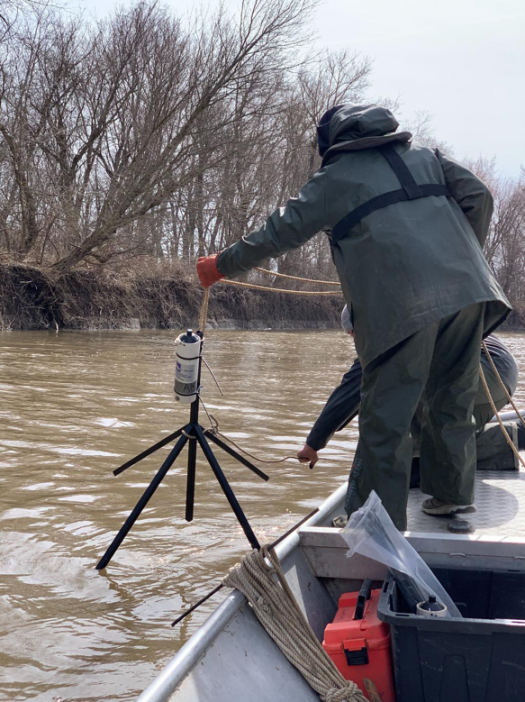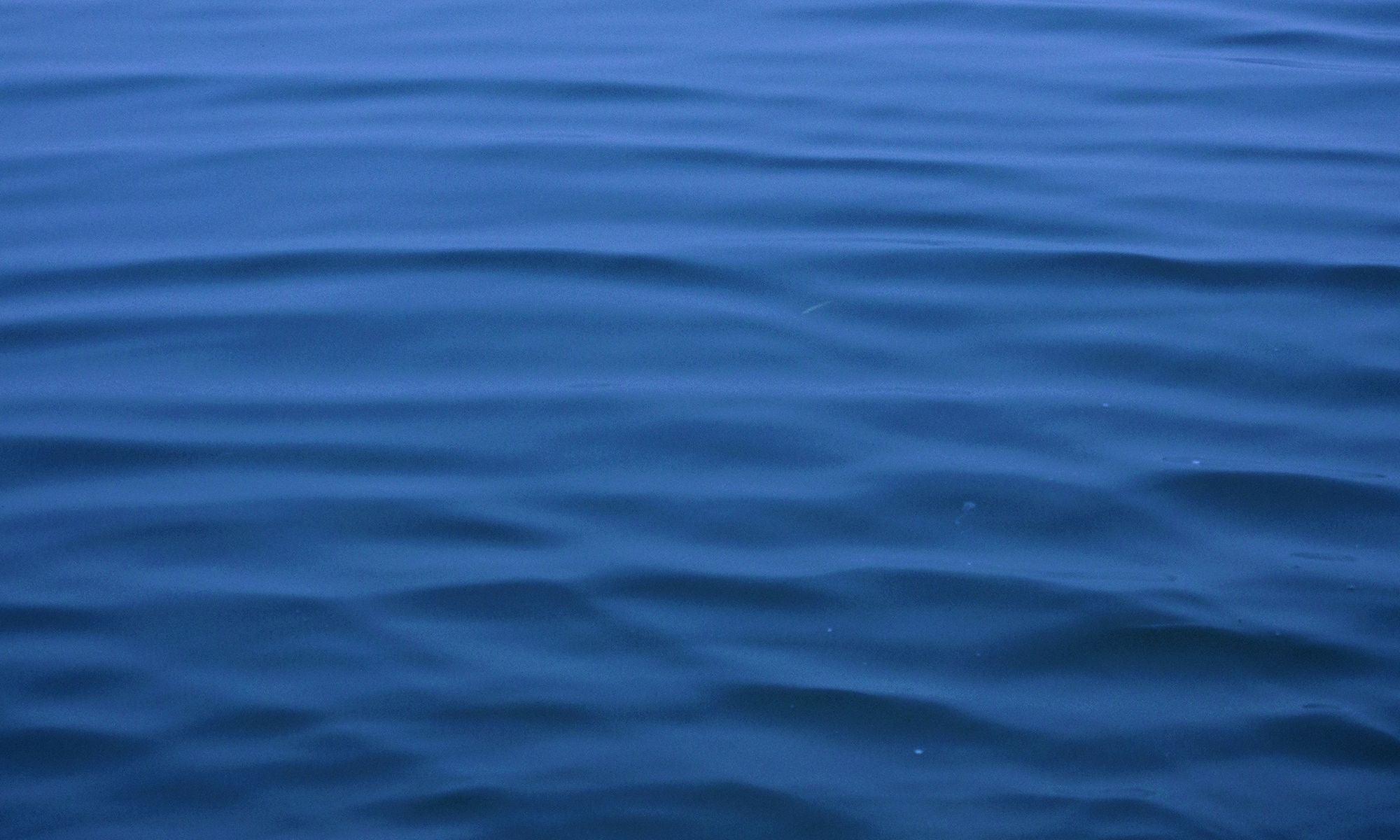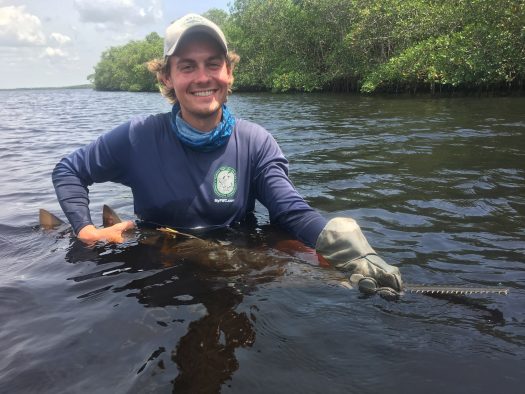 By Torri Leek
By Torri Leek
Outside the sky is still dark and the early morning air is chilly. The day’s forecast is partly cloudy with a high of 48 degrees. At the Natural Resource Studies Annex, the SFEL lab truck is filled with gear and has a full tank of gas. Ahead of us is a two-and-a-half-hour drive to the Illinois River to set out on our first day of fieldwork for the year!
On Friday March 13th, despite superstition, the weather began to show signs of spring, which was perfect for receiver deployment for our shortnose gar movement study. With the help of biologists Kris Maxson and Levi Solomon, along with their technicians Carly Capon and Devlon Sutton from the Illinois River Biological Station, our team (Justin Rondon, Miles Bensky, and I) placed 24 acoustic receivers in select side channel, back water, and main channel locations of the Illinois River. 2020 will mark as the third year of data collection for this ancient sport fish project.
Last Summer, we implanted the last of our transmitters, adding another 10 fish to our study. Learning to perform surgery on gar was really cool and I was excited to be an important part of this research. Tracking shortnose gar will give us a better understanding of how these aquatic relics use the different river habitats and the movement patterns between these areas, and in turn can help us ensure that these sometimes-misunderstood creatures persist another 100 million years.
Thank you again to Levi, Kris, Carly, Devlon and the Illinois River Biological station. We appreciate all your help in making this work happen.
We were lucky to get this work done before the shelter-in-place order was issued in Illinois as we can collect some data now while we are social distancing. Even though field work ended as quickly as it started, we are all hopeful that we will be back out on the water soon.
Cheers to an optimistic and successful continued field season!


